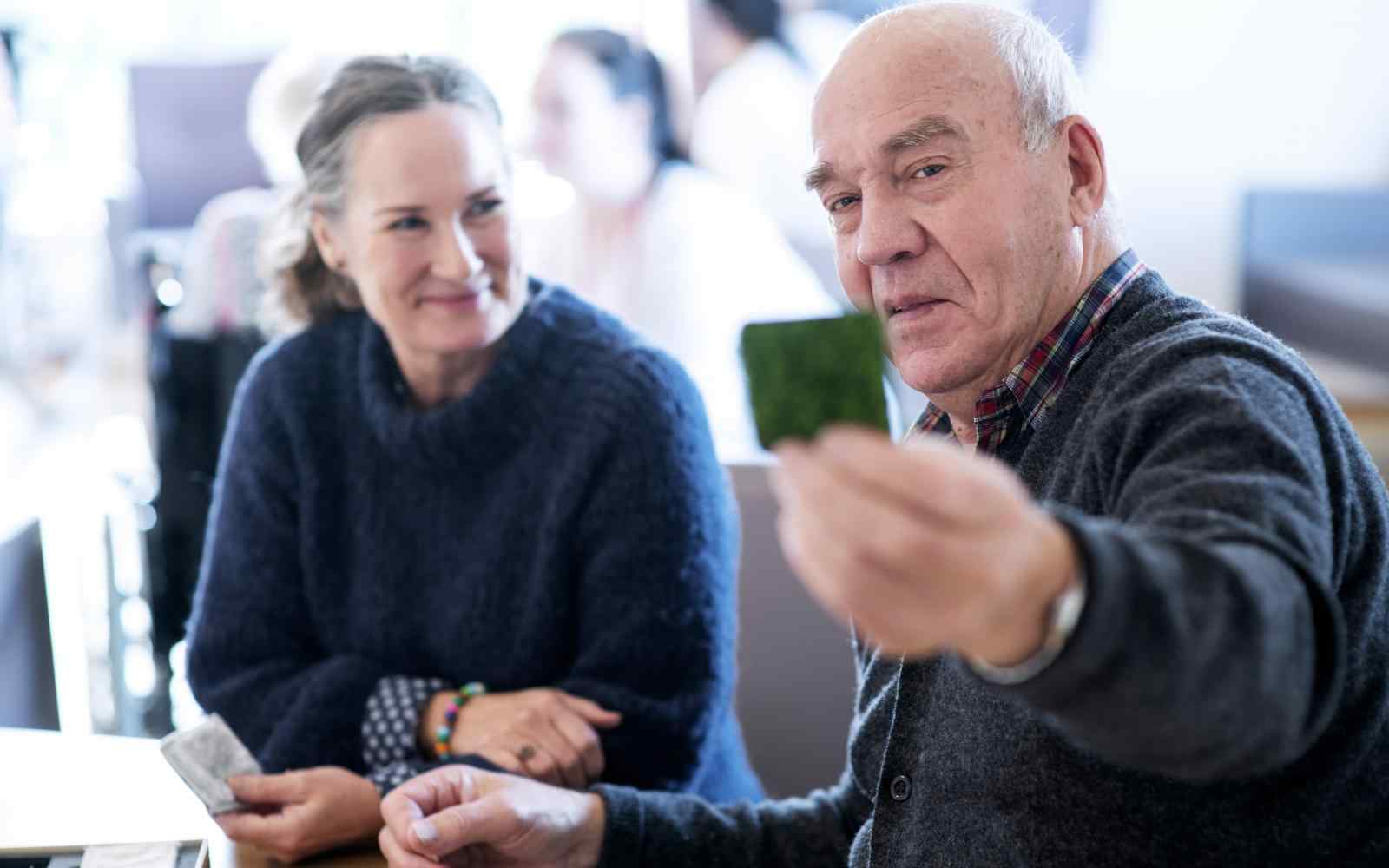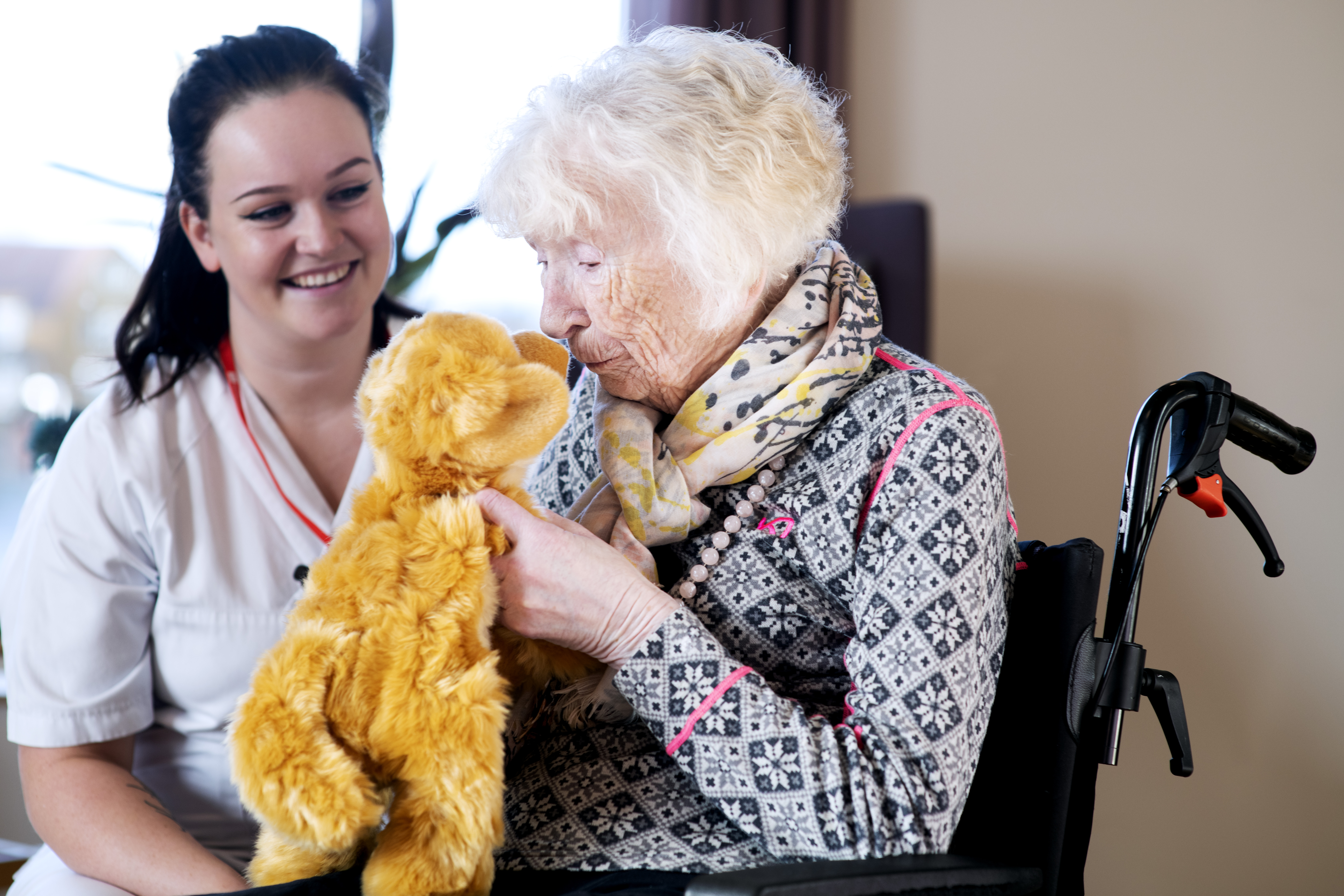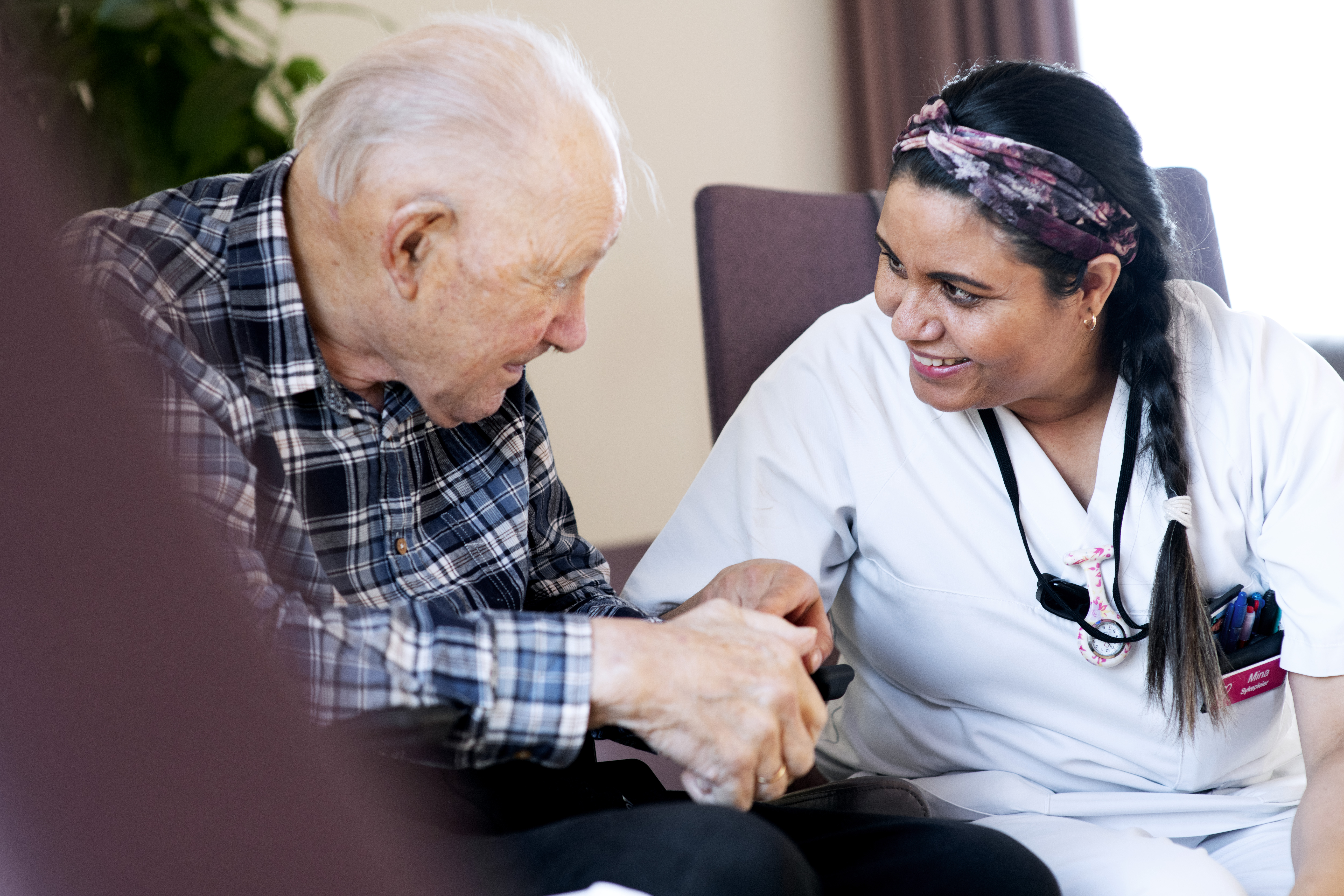Transforming long-term care for the elderly: Lone Koldby
Lone is a changemaker, social-entrepreneur and trained physiotherapist who works to humanize elderly care. She does so through her organization Activity Dose, which encourages caring for the whole individual using an empathy-based and individualized approach to caring for the elderly in nursing homes. Source: Lone Koldby, Activity DoseShareFacebookTwitterLinkedinMailCopy
Source: Lone Koldby, Activity DoseShareFacebookTwitterLinkedinMailCopy
Care for the elderly has traditionally focused on medication and generalized activities (e.g. bingo or card games), which risks overlooking how each individual requires different activities and approaches in order to support their wellbeing. To address this gap in elderly care, Ashoka fellow since 2013 Lone Koldby is transforming long-term care for the elderly by emphasizing activity and social interaction as foundations for health and wellbeing. Her approach aims to change the mindsets of staff and patients to get to know individuals, focusing on a more empathy-based model of care.
A new system that humanizes elderly care
Lone’s organization, Aktivitetsdosetten / Activity Dose, facilitates activities that encourage residents of nursing homes to regain their agency and sense of dignity. Her organization is rethinking care for the elderly by focusing on the individual. This means for instance that a person’s life experience and need for social interaction are considered when designing a method of care beyond medication.

Inspired by the Norwegian concept of “dosett” or the pillbox containing medication dosages, Lone’s thinking behind Activity Dose is to focus on a set of different “doses” of activities tailored to the individual as a form of care that improves quality of life. For example, “dancing, singing, painting, walking, playing with animals, among others … activities that have “demonstrably improved the quality of life and sense of purpose of their participants”.
Lone has trained 400+ “activity docs” within Norway to administer this program. The effectiveness of Activity Dose has also been recognized by policymakers in the health field in Norway as a way to address the growing problem of passivity and overmedication within standard models of elderly care.
To nourish this individual aspect of care, Activity Dose provides doses of activities based on what is best suited for the individual. This process involves 1) defining areas of interest, 2) picking suitable activities 3) writing the activity dose, which is based on individual’s own areas of interest.
Inaddition, Lone has created the “Felleskatalog”, which is a digital book of activities that staff can use when caring for patients. The book is similar to the one used by doctors when prescribing medications for patients, though it is replaced with individualized activity recommendations.
By inviting caregivers and family members to help design their activities, this approach adds meaning into their lives to help regain a sense of dignity and agency.
Throughout the time that Activity Dose has been applied, the nursing home residents have become happier and more energetic. Physical evidence of patients having an easier time breathing and sleeping without the need for medication is also a testament to the effectiveness of Activity Dose.
The early stages of Activity Dose to global recognition
Lone began the Activity Dose as a project funded by the municipality of Stavanger as a way to first test this approach. Nursing home staff were provided with the tools on how to help patients maintain cognitive skills, physical function, and social relationships. This focus on activity – through engaging both the body and mind — is key to how Activity Dose can enhance quality of life for patients. Later she was the architect of the Activity Suitcase funded by the health ministry and developed a physical toolbox with a variety of activities, games etc.

Activity Dose serves as a model of how care for elderly patients in nursing homes can enhance quality of life, encouraging activity and social interaction over passivity and medication. Lone’s work aims to change mindsets of staff to recognize how to treat individuals holistically as well as helping elderly patients to realize their own agency by revitalizing activity through their interests and social interactions. This model can inspire elderly care globally through creating a ripple effect by implementing activity dose at other institutions as a new model of elderly care to lead the way for other nursing homes.
If you would like to find out more about Lone’s organization and work towards systems change within elderly care, visit her profile here and the Activity Dose.
